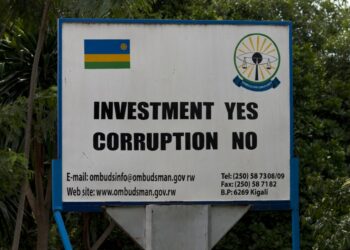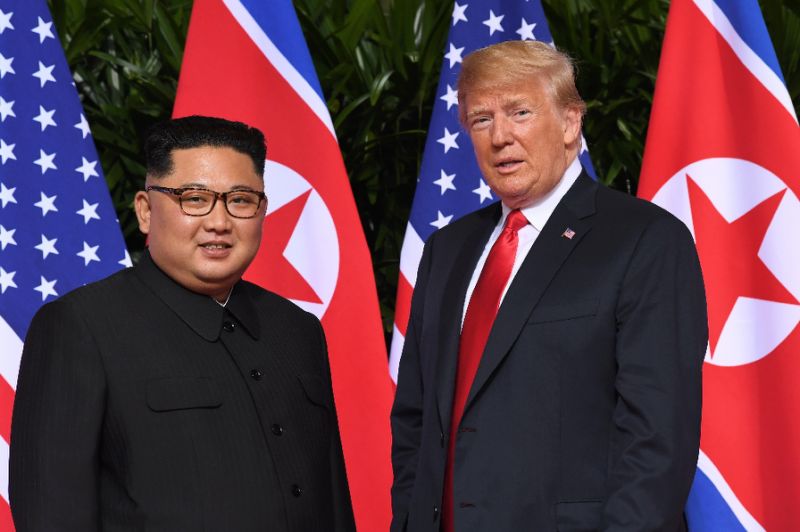Israel’s attorney general has announced his intention to indict Prime Minister Benjamin Netanyahu on charges of fraud, breach of trust and bribery pending a hearing.
Here are a series of questions and answers on the allegations and their impact on April 9 elections:
What Did the Attorney General Announce?
Attorney General Avichai Mandelblit, following up on police recommendations into three separate cases, said Thursday he planned to indict Netanyahu for bribery, fraud, and breach of trust pending a hearing.
The hearing will provide Netanyahu with a chance to defend himself before charges are filed, a process that is not expected to take place before the elections.
If Mandelblit moves ahead with charges, it would take perhaps another year before an actual indictment is filed, said Gayil Talshir, political science professor at Jerusalem’s Hebrew University.
Trump Ahead of Netanyahu Indictment Decision: 'He's Done a Great Job as PM'https://t.co/xObQ7qPrpy pic.twitter.com/tO7eGQSGvG
— Haaretz.com (@haaretzcom) February 28, 2019
A trial and appeal could drag on for years beyond that.
Netanyahu is not required to step down if indicted, only if he is convicted with all appeals exhausted, meaning Israel could theoretically witness the odd spectacle of a prime minister on trial while in office.
He would also be the first Israeli premier to serve under indictment.
What Are the Accusations?
The allegations involve gifts such as pricey cigars and champagne, as well as positive media coverage in exchange for changes to existing regulations.
In one case, Netanyahu is accused of pursuing regulatory benefits allegedly granted to telecommunications firm Bezeq in exchange for positive coverage from a related media company.
The attorney general said he intended to indict Netanyahu for bribery, fraud, and breach of trust in that case.
Another involves Netanyahu allegedly seeking a secret deal with the publisher of Israel’s top-selling newspaper Yediot Aharonot to ensure positive coverage in return for pushing forward a law that would have limited the circulation of a rival.
Netanyahu faces fraud and breach of trust charges linked to that investigation.
The third case involves suspicions the premier and his family received luxury gifts such as cigars and champagne from wealthy individuals, including Hollywood producer Arnon Milchan, in exchange for financial or personal favors.
He also faces fraud and breach of trust charges in that case.
How Will it Affect the Elections?
That is the question on all political observers’ minds and one that cannot yet be answered.
Netanyahu responded to the attorney general’s announcement with characteristic defiance and scorched-earth rhetoric, castigating the investigations as a plot by his enemies to drive him from office.
His main opponents in the election called on him to resign for the good of the country.
Netanyahu has been prime minister for a total of around 13 years and would be on track to surpass founding father David Ben-Gurion as Israel’s longest-serving premier should he win in April.
But a centrist political alliance of his main challengers unveiled on February 21 poses a serious risk.
The alliance under the name Blue and White – the colors of the Israeli flag – is headed by a respected former military chief of staff, Benny Gantz.
Can Netanyahu Survive?
Before the announcement of the alliance, opinion polls consistently showed Netanyahu and his right-wing Likud comfortably ahead.
Since then, polls have shown Gantz with the most seats, though not nearly enough to win outright and it is unclear if he would be able to assemble enough parties for a coalition.
In any case, the election is expected to be tight with many fluctuations between now and April 9.
One key will be whether Netanyahu allies on the right who are currently part of his coalition begin to criticize him over the allegations, which so far has not happened.
“The minute you see that this is happening, you’ll know that it is the end of the era of Netanyahu,” said Talshir.
Political science professor Ilan Greilsammer said it is difficult to know how Netanyahu’s traditional backers will view the investigations.
“Likud’s electoral base is loyal to him and those who vote for Netanyahu out of loyalty will not be influenced by the allegations, which they don’t believe,” he said.
“On the other hand, some who vote Likud will be concerned by the legal accusations and will vote for other parties.”
More on the Subject
A U.N. probe released Thursday said Israel may have committed crimes against humanity in responding to last year’s unrest in Gaza, as snipers “intentionally” shot civilians including children, journalists and the disabled.
Commission member Sara Hossain told reporters in Geneva that Israeli snipers “intentionally shot children.”
“They have intentionally shot people with disabilities. They have intentionally shot journalists,” she added.
























